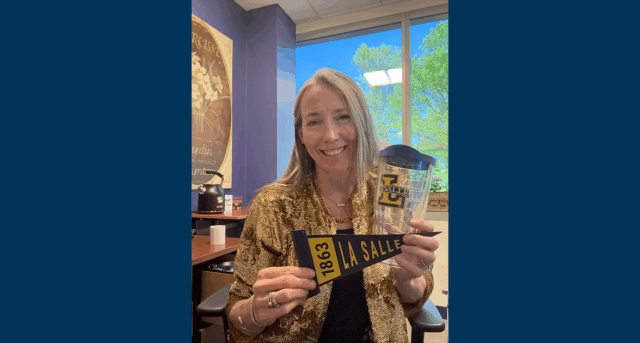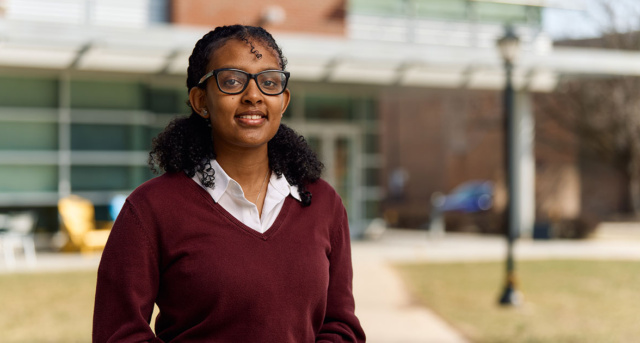La Salle University

What you’ll learn
The Actuarial Science major best prepares students for careers as actuaries through coursework in mathematics, economics, and finance. Eleven courses in Mathematics provides a foundational understanding that allows students to develop strong analytical skills while learning the important mathematical concepts needed for future professional pursuits. Two courses in Economics and four courses in Finance and Accounting help to complement this coursework by providing students with practical knowledge regarding business principles and human behavior. And finally, coursework in Computer Programming provides them with an introduction to this skill that is considered essential in the industry.
Why Study Actuarial Science at La Salle?
La Salle’s Actuarial Science major prepares students to take two of the exams required for professional actuarial status by the Society of Actuaries and the Casualty Actuarial Society – Exam P (Probability) and Exam FM (Financial Mathematics). In addition, the curriculum allows students to obtain actuarial society credit in all three Validation by Educational Experience (VEE) areas: Economics, Mathematical Statistics, and Accounting and Finance (VEE credit is awarded after coursework is completed and two society exams are passed). As early as their first year, students in the program have opportunities to participate in co-curricular activities to enhance their academic experience. Through attending talks, networking with alumni and liaisons, and participating in exam preparation sessions, students strengthen their career preparation and familiarize themselves with opportunities offered by both the Casualty Actuarial Society and the Society of Actuaries.
Highlighted Courses
MTH 410: Probability
This course is an advanced study of the field of probability and covers all the topics necessary to sit for Exam P given by the Society of Actuaries. Topics include both discrete and continuous random variables, conditional probability and independence, jointly distributed random variables, and expectation.
MTH 411: Mathematical Statistics
Building on concepts from MTH 410, this course comprises a rigorous study of statistics and includes topics such as Confidence Intervals, Hypothesis Testing, Maximum Likelihood Estimators, Correlation & Regression, and Contingency Tables. Topics in this course are central to a career as an actuary.
MTH 415: Financial Mathematics
Students learn and apply the fundamentals of financial mathematics, including present and future values, reserving, valuation, pricing, asset and liability management, investment income, budgeting, and contingencies. This course prepares students to take Exam FM offered by the Society of Actuaries.
Meet the Faculty
Faculty will provide students with a classical foundation in the core of mathematics; introduce current theories, research areas, and technologies; and demonstrate the links between theory and its embodiment in the world of applications, particularly those of an actuarial nature. The combination of coursework, co-curricular learning experiences, and mentoring from faculty and alumni, with various opportunities for personalization, will position Actuarial Science students to leave La Salle prepared to enter and advance in the actuarial profession in an industry of their choosing.
Career Opportunities
U.S. News ranks actuaries seventh in Best Business Jobs for 2022 and eleventh in Best STEM Jobs for 2022.
Our most recent grads are employed by Oliver Wyman, Chubb, Philadelphia Insurance Companies, WTW (formerly Willis Towers Watson), Mercer, Anthem. Typical industries for actuaries include insurance companies, risk management firms, consulting companies, healthcare organizations, and governmental agencies.
Industry Growth
Tremendous job growth is forecasted within the decade for the actuarial field. Employment is projected to grow 21% from 2021 to 2031, according to the Bureau of Labor Statistics.
Wage Growth
Wages for actuaries are also on the higher end of the pay scale with the median annual wage landing at $105,900 as of May 2021, according to the Bureau of Labor Statistics.

Alexis Sanchez, ’25, La Salle’s 2025 undergraduate commencement speaker, found her voice by saying yes—even when life said no.

For Crystal MacNeill, ’92, La Salle was “love at first sight,” and that love has only grown. Crystal MacNeill, ’92, arrived at La Salle thanks to the suggestion of a […]

Nigist Legesse, ‘25, is pushing boundaries in technology while balancing academics, leadership, and work.